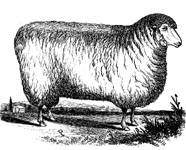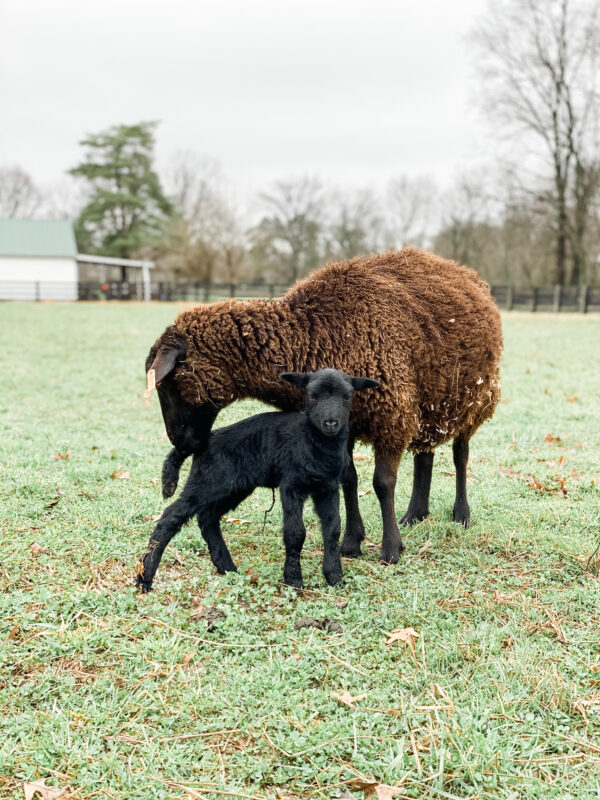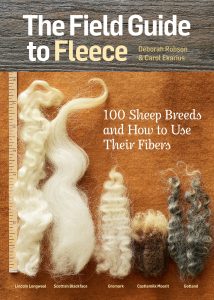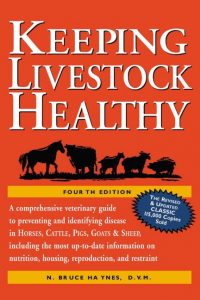
Breed Facts
Status:
Threatened
Use:
Wool, Meat
Adult Weight:
Rams: 132-143 lbs. Ewes: around 100 lbs.
Temperament:
Variable by flock
Experience Level:
Novice – Intermediate
Notes:
Does not flock tightly; some breeders describe them as intelligent and eager to please
BLACK WELSH MOUNTAIN SHEEP
The Black Welsh Mountain is the only completely black sheep breed in Britain. It was developed in the mountains of Wales from black sheep that occurred in the Welsh Mountain breed, which was white. About a century ago, Welsh shepherds began to breed the black sheep together, also selecting for a finer fleece and improved body conformation. The resulting breed, also known by their Welsh name, Defaid Mynydd Duon, was recognized in 1922 with the establishment of the Black Welsh Mountain Sheep Society.
These sheep were first imported into North America in 1972 by Thomas Wyman of Easton, Maryland. A US breed registry was established in 1990, adopting the standard and rules of the British Society. It includes animals that are descendants of the Wye Heights flock and other registered British sheep.
Black Welsh Mountain sheep are small to medium in size, with a mature ewe weighing around 100 lbs. and a mature ram between 132-143 lbs. Rams have attractive horns that curl around the ears; ewes are polled. They have gray skin. They are excellent foragers and excellent mothers, able to raise lambs on marginal pasture.
The Black Welsh Mountain sheep standard requires that the breed must maintain its long tail; it may not be docked. The tail provides both cover and protection for the udder. As this breed is flystrike resistant, the tail is not a health hazard like it is with some other breeds.
Their wool is short, thick, and densely stapled. The staple length is 5 to 10 cm, and the fiber diameter ranges between 28 to 36 microns. The average wool clip is three to four pounds per sheep. Black Welsh Mountain wool is attractive to hand spinners. The natural black color makes it valuable for use undyed or in combination with other wools, when it is used to make grays or in the manufacture of tweeds and other patterns.
Black Welsh Mountain market lamb is considered premium meat in Britain, and their mild-flavored mutton has long been popular there as well. The breed is known for its hardiness and self-reliance, qualities that were important in its native environment.
The breed has been described as intelligent and “eager to please.” They have been promoted as an exotic sheep breed in North America, and this has made them a well-kept secret in the sheep industry and among sheep producers. The breeds qualities, however, make the breed a natural choice for sustainable sheep producers. The Black Welsh Mountain should become better known as it is used in this production niche because the North American population is important for global conservation.
Did you know:
Since we launched the Microgrants program in 2018, dollars have been awarded to help every one of the 11 species we serve. Almost one-third of the breeds on the CPL have received funding. Yet, only about 8% of microgrant projects can be funded each year. Click here to help us support more endangered breeds and hard-working farmers, ranchers, and shepherds with your gift today.
You may be interested in…

Breed Facts
Status:
Threatened
Use:
Wool, Meat
Adult Weight:
100 -130 lbs
Temperament:
Variable by flock
Experience Level:
Novice – Intermediate
Notes:
Does not flock tightly
You may be interested in…




